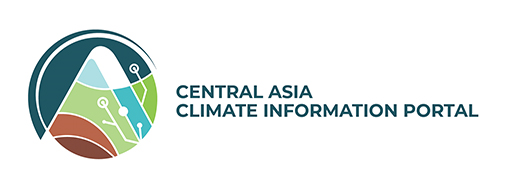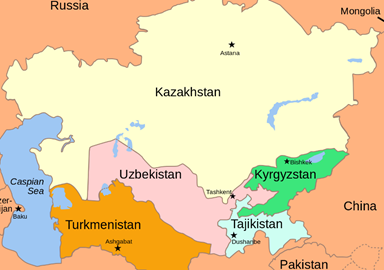Press-release

Digital Climate Resilient Future of Central Asia

The Central Asia Climate Information Platform (CACIP) has merged five Central Asian countries under its digital umbrella.
For the first time, CACIP harvests climate data about all countries in the region, Kazakhstan, Kyrgyzstan, Tajikistan, Turkmenistan and Uzbekistan, at a single intellectual information platform.
The CACIP platform is a unique project aimed at promoting a knowledge-based approach to climate issues.
A well-structured database (knowledge repository, geoportal, e-learning platform) of CACIP is collected from trustworthy academic sources. It is freely available and open to users all over the world and, of course, Central Asia. The knowledge repository provides more than 1,900 scientific and non-fiction publications on energy, water resources, agriculture, health, and climate-induced disasters. Geoportal includes geospatial data and provides a choice of types of analytical information. Users have options to work with existing maps and layers of climate data or create their own. Currently, CACIP comprises over 900 maps and layers to assess the climate vulnerability and risks that are available only at CACIP. The CACIP climate panel displays weather data of Central Asia that varies from forecasts until 2099 to historical data dating back to 1980. This information can be useful to hydrometeorological services, scientists, and experts. The e-learning platform provides a series of free modules on climate change in Central Asia and the world. These modules are developed for teachers, undergraduates, researchers, and all those interested in climate change adaptation. For instance, the online International Training Program DSSAT aims to improve the capacity of the staff of hydrometeorological services to use the computer simulation model Decision Support System for Agrotechnology Transfer (DSSAT) to predict yields. Modsnow-based courses developed by the Department of Hydrology and Geohydrology of the German University of Stuttgart use the methodology for using remote snow-sensing data for hydrological forecasting in Central Asia.
The interactive climate information platform opens with a click on any device. Its databases are systemically updated and can be used for both applied and strictly scientific or educational purposes.
The most important feature of CACIP to date is the open multilateral exchange of information in a wide range of areas of climate issues at any level, from global to national.
CACIP established accordingly to the global principle of joining efforts to combat climate challenges optimizes the existing resources of Central Asian countries, strengthens the regional cooperation and the relationships to tackle acute climate problems.
The launch of an interactive Central Asia Climate Information Platform is the first in the region project of new technologies both combining and disseminating a wealth of information, knowledge and experience for the benefit of states to address jointly climate challenges.
CACIP is developed within the framework of the Central Asia Regional Environmental Center (CAREC) project “Climate Adaptation and Mitigation Program for Aral Sea Basin” (CAMP4ASB) in collaboration with the International Center for Agricultural Research in the Dry Areas (ICARDA) and its partners. The Project is financed by the World Bank.
The Regional Environmental Centre for Central Asia (CAREC) is an independent, non-political and non-for-profit international organization with regional mandate to assist the Central Asian governments, regional and international stakeholders in addressing environmental and sustainability challenges across Central Asian region and Afghanistan.
CAREC was established in 2001 by a joint decision of all five Central Asian states (Kazakhstan, Kyrgyzstan, Tajikistan, Turkmenistan and Uzbekistan), European Union and UNDP, following the resolution of the IV Pan-European Conference held in 1998, Aarhus (Denmark).
About ICARDA
ICARDA is an international organization undertaking research for development. We provide innovative, science-based solutions for countries across the non-tropical dry areas. Our research aims to reduce poverty and enhance food, water, and nutritional security and environmental health, in the face of global challenges, including climate change.
Since its establishment in 1977, ICARDA has implemented research-for-development programs in 50 countries across the world’s dry areas - from Morocco in North Africa to Bangladesh in South Asia.
